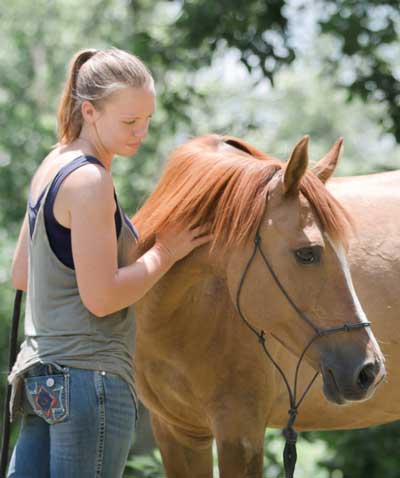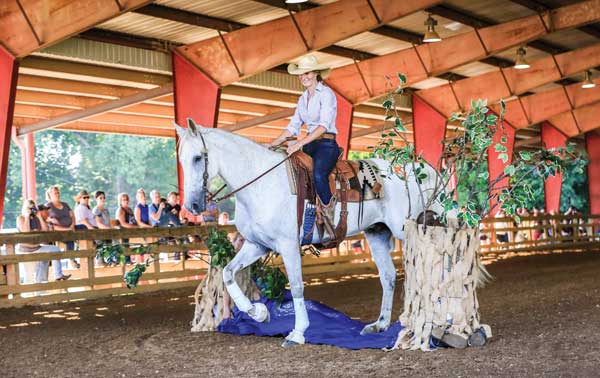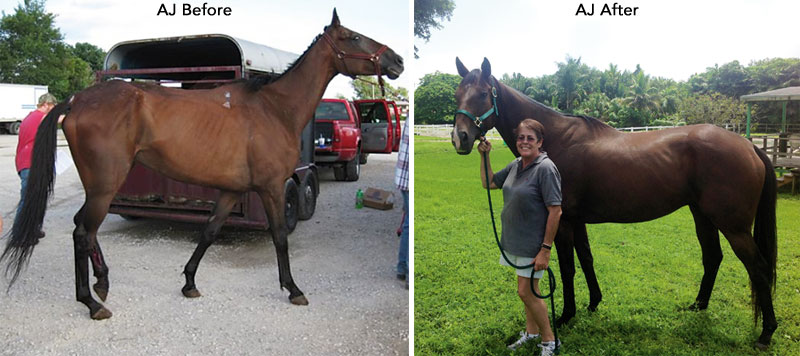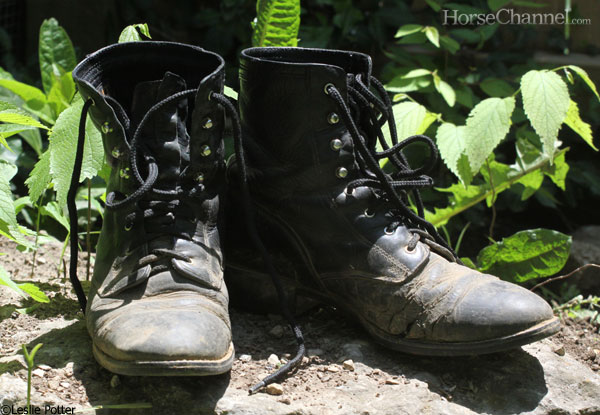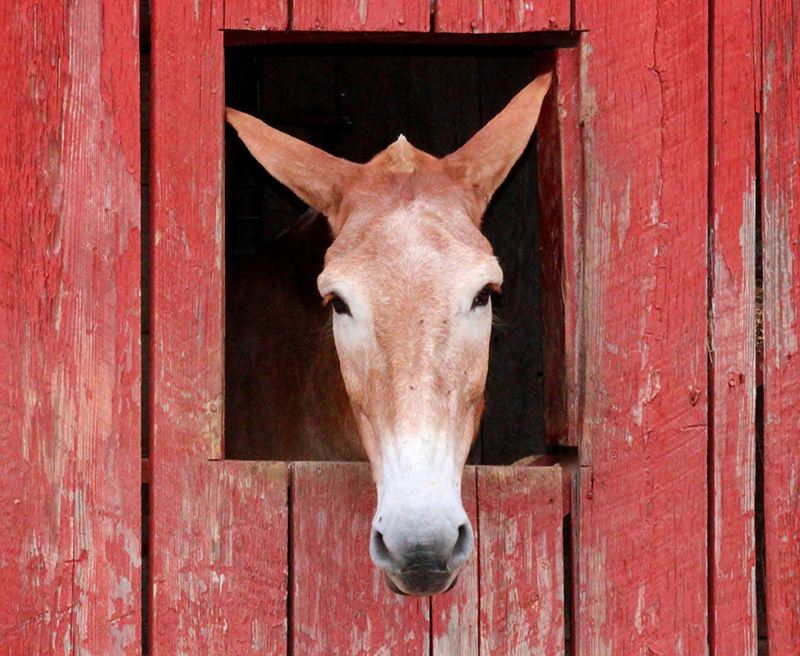In 2019, Jacqueline Chevalier, DVM, attended the Appalachian Trainer Face Off competition in Winfield, W.V., intending to support event sponsor The Heart of Phoenix Horse Rescue with a monetary donation on behalf of her clinic. She left the event with more than a receipt for her donation.
“We came home with a horse,” she says. The horse was Everest, a 6-year-old so-called three-striker Mustang that had been passed over for adoption three times at Bureau of Land Management (BLM) events.
“He was included in the Face Off at the very last minute to give him a chance at a good life,” Chevalier says. “We just fell in love with him.”
A Horse for Everyone
The Appalachian Trainer Face Off has been giving horses like Everest such a chance since the idea for the event was hatched by Heart of Phoenix Founder and President Tinia Creamer. The idea was discussed at a conference exploring ways to help horses and stimulate the equestrian community in general.
Patterned after the highly successful Extreme Mustang Makeover, the Appalachian Trainer Face Off features horses rescued by Heart of Phoenix, either in law enforcement seizures, surrenders, or culled from herds residing on abandoned strip mine properties in West Virginia.
“The horses either have had only limited training or have never been handled at all,” Creamer explains. “And while events such as the [Extreme] Mustang Makeover or the Thoroughbred Makeover deal with specific breeds, this event showcases horses of all breeds, ages and backgrounds.”
Trainers who take part in the competition hail not only from West Virginia, but from throughout the U.S., including Ohio, Indiana, Texas, Virginia, Pennsylvania and New York.

In May, each trainer chooses from a pool of horses to train for the makeover and has 100 days to prepare for the final competition. Photo by Anett Mindermann
How It Works
The Face Off begins in May, when the names of participating trainers are drawn at random.
Each trainer chooses from a pool of horses to be used in the event, and then has 100 days to train the animal to compete in three divisions, including the technical division. This focuses on basic horse handling, such as haltering and leading the horse, picking up his feet, loading and unloading, saddling, and riding at the walk, trot and canter. The trail division requires successfully navigating a trail obstacle pattern, and a freestyle division is designed to showcase a horse’s specific skills.
“That’s where trainers really get to show off their horses’ strengths,” says Ohio trainer Brenda Hanson, who won the Face Off in 2018 and participated again in 2019.
Trainers may compete in one division or in all three. Those who choose horses that have had the least amount of previous handling start the competition with bonus points, which are dictated by the horse’s training level.
“Some horses have been only lightly ridden and need further training; some have never been touched,” says Hanson.
After 100 days of training, the trainers exhibit their horses at the Appalachian Trainer Face Off in August.
“The biography of each horse is read while it is shown,” says Creamer. “Also, the event lets people see the process and how the trainers work and how horses are transformed by training. It showcases great trainers so that if someone is looking for a trainer, they have a place to start.”
The Face Off has become so well recognized among trainers that it has grown from just eight horses and eight trainers in 2017 to 25 trainers and 36 horses in 2019.
“The trainers who compete use the Face Off as a credential,” says Hanson.
Winning trainers walk away with a portion of their horse’s adoption fee, a one-time gift from a feed sponsor, and $50 derived from an American Society for the Prevention of Cruelty to Animals (ASPCA) grant. But the horses are the biggest winners of the competition, Creamer says.
Adoption Afterward
After the Face Off, horses are made available for adoption through the Heart of Phoenix Equine Rescue. All prospective adopters are subject to the organization’s strict adoption policy that requires submission of a detailed written application, photographs illustrating where the horse will be kept, and details of the applicant’s horse care experience, including references from veterinarians and farriers. Prospective adopters are also encouraged to work with the trainer who worked with the horse during the competition.
All told, 80 percent of the horses in the 2019 Face Off were adopted, according to Creamer.
Of those, the majority went to new homes out of state.
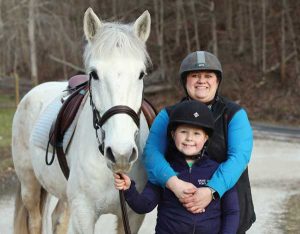
Jacqueline Chevalier, DVM, adopted Everest, a so-called “three-striker” Mustang from the Trainer Face Off. He now enjoys the good life with Chevalier’s children and his nine stablemates. Photo Courtesy Jacqueline Chevalier, DVM
More than 1,000 people from throughout the U.S. attended the Appalachian Trainer Face Off horse show, making the event one of the largest in the U.S. And while only some go home with a horse, all come away with a new attitude about equine welfare and the value of adoptable horses.
“You can’t come to this event and go home with the same idea of [the potential] of an adopted horse,” Creamer says. “It changes people’s mindset.”
Meanwhile, Everest—now known as Happy Ever After, aka “Ever”—is at home with Chevalier, her children, and nine other stablemates.
He’s still working with his Face Off trainer Bethany McNett and honing his skills as a show ring mount for Caroline. Just as importantly, Ever is living his best life thanks to the Face Off.
“For a horse like Ever, there really was no alternative but to get a training foundation and then be adopted,” says Chevalier. “These days, he still has some training issues to revolve, but he really is living the life of Riley.”
This article about the Appalachian Trainer Face Off appeared in the April 2020 issue of Horse Illustrated magazine. Click here to subscribe!

